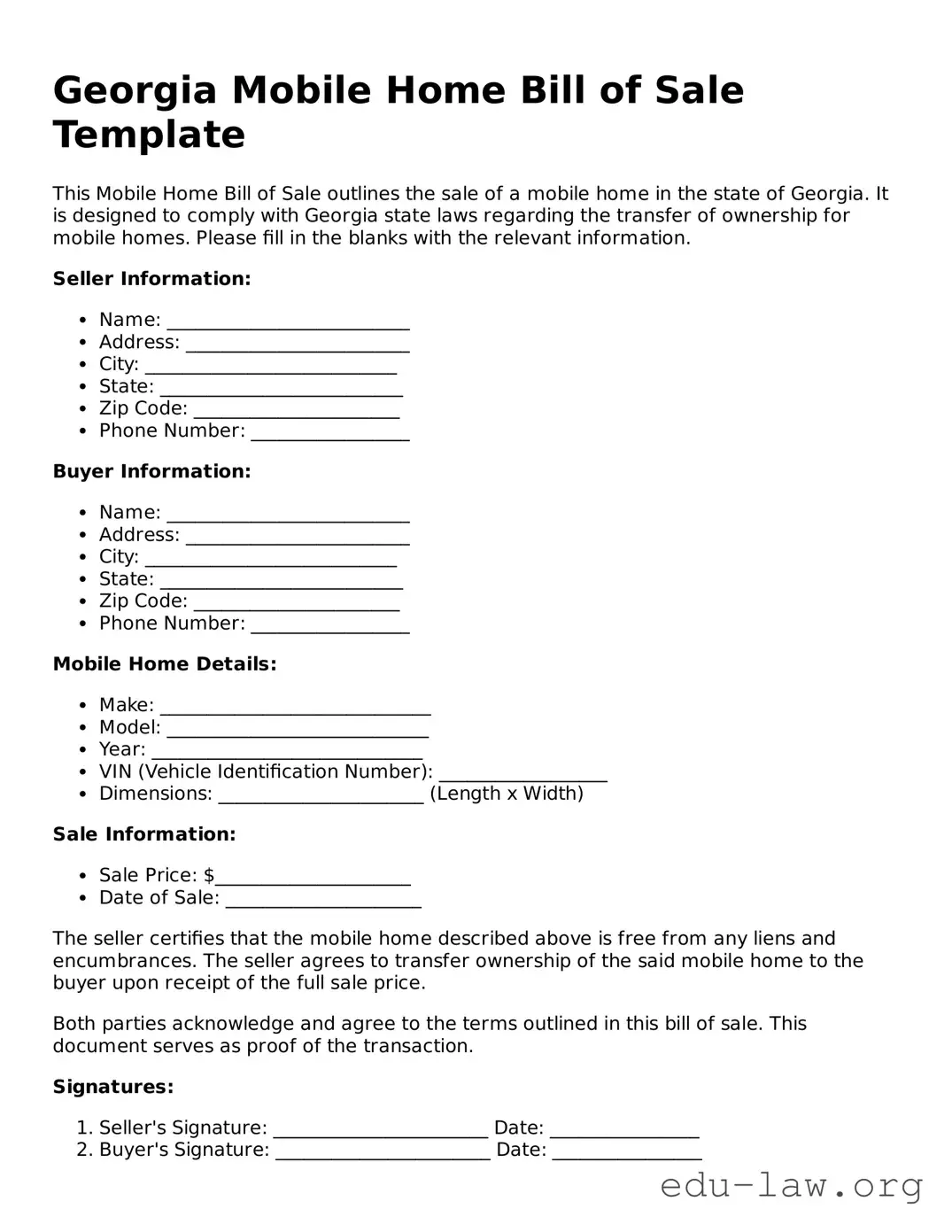What is a Mobile Home Bill of Sale in Georgia?
A Mobile Home Bill of Sale is a legal document that transfers ownership of a mobile home from one party to another in the state of Georgia. It serves as proof of the transaction and outlines essential details, including the names of the buyer and seller, the mobile home’s identification number, a description of the property, and the sale price. Having this document properly filled out and signed can help mitigate future disputes regarding ownership.
Why is a Mobile Home Bill of Sale important?
This document is crucial for both buyers and sellers. It provides legal protection by documenting the agreement between the parties. For buyers, it confirms their ownership and can be required if they wish to register the mobile home or obtain financing. For sellers, it acts as proof of the sale, which can alleviate any future claims of ownership or liability. Without this document, ownership transfer may be questioned or challenged.
What information is required in a Mobile Home Bill of Sale?
The Bill of Sale must include several key pieces of information: the full legal names and addresses of both the buyer and the seller, the mobile home’s identification number (found on the title or the vehicle), a description of the mobile home (make, model, year), the sale price, and the date of the transaction. Both parties should sign the document. It’s also advisable to have a witness or notary present to ensure everything is in order, although this is not a legal requirement in every case.
Do I need a title to sell a mobile home in Georgia?
Yes, to sell a mobile home in Georgia, you must have the title in your possession. The title proves that you are the legal owner of the mobile home. If the title is lost, the owner needs to apply for a duplicate title through the Georgia Department of Revenue. Once the title is obtained, you can proceed with completing the Mobile Home Bill of Sale. Remember, the bill of sale does not replace the title; instead, it complements the ownership transfer.
